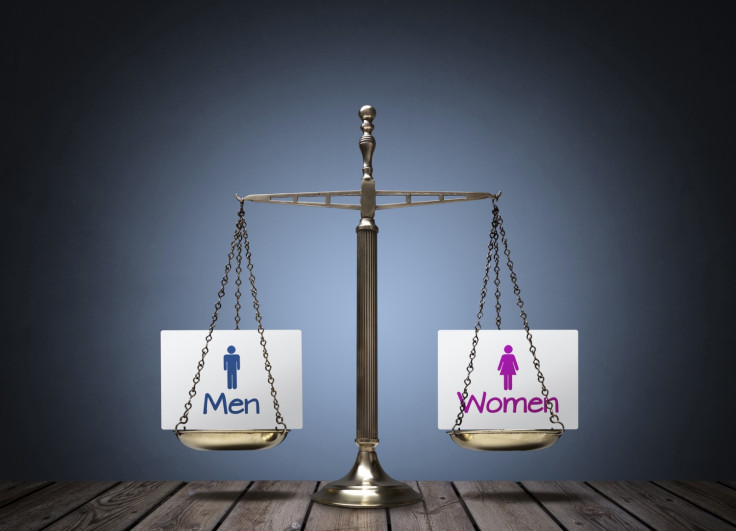Men have problems – but men's rights activists aren't solving them
The movement is too busy attacking women to fix issues like suicide and unemployment.

Below is the speech given by journalist Lydia Smith for the debate Gender Wars: What's wrong with men's rights? for the 2016 Battle of Ideas festival.
Most of you will have heard of men's rights activists. You may have seen their websites, blogs or tweets – those of them who haven't been banned from Twitter, that is. You may have seen some of them on TV. You may even have bought one of their books.
Let me start by saying that men in Britain have problems: boys underperform in education, 60,000 fewer men go to university each year than women. Our prison populations are overwhelmingly male. And suicide is the biggest killer of middle-aged men in Britain.
These are real issues we must address as a society – but the problem is men's rights don't address these problems.
Men's rights activism has the reach and the influence to help engineer actual change but instead it exploits these issues for one aim: to fuel anti-women rhetoric. Instead of looking at the causes of poor education and unemployment – which include race, class and the rigid constructs of masculinity – men's rights twist the talking points of women's rights to prove that men are in fact the more oppressed gender.
Both women and men suffer domestic violence, but has the men's rights movement set up shelters for men who are victims? Has it called for government enquiries? Does it raise money for research into the scale of domestic violence against men?
No. Instead, activists spend their time trolling news comment sections to dispute data about the scale of domestic violence against women.
This isn't activism. In choosing to spew misogyny and hate rather than affect actual change, these keyboard crusaders are betraying the very people they claim to defend: men.
As a result, it falls to charities like Refuge – which has traditionally focuses on female victims of domestic violence – to set up services for men across the country.
Historically, men's rights activism has always attacked women's rights. For example, in 1926, the League for Men's Rights was founded with the goal of: "Combating all excesses of women's emancipation."
I don't usually quote Urban Dictionary, but it hits the nail on the head with its description of so-called "Meninism" as a "movement that [...] claims to advocate men's rights but fails to do so because they are too busy complaining about and harassing feminists".
Every time I cover International Women's Day it leads to men's rights activists asking why the same attention isn't given to International Men's Day. It is similar to the All Lives Matter response to Black Lives Matter. It misses the point entirely.
Men are not under attack – nor are they about to lose the privileges bestowed on them by divine right – but many still feel under threat.
Our society has always dictated that men are dominant. And so if they aren't flourishing at work, or have problems at home, this failure against a backdrop of male entitlement leads to anger. This anger is then directed at a perceived – but non-existent threat – women.
But this ignores the fact that masculinity drives many problems women face: such as domestic violence. It is as harmful for women as it is for men.
My final point is that while it's easy to laugh off men's rights activists, the anger towards women they promote is dangerous.
In 2014, a 22-year-old man called Elliot Rodgers went on a shooting spree in California, killing six people. He frequently visited men's rights websites and just before the shooting, he posted a video on YouTube. He said: " I don't know why you girls aren't attracted to me. But I will punish you all for it."
There were, obviously, many complex issues behind that horrific attack but undeniably one of them was Rodgers' hatred of women, no doubt fuelled by the men's rights sites he visited. He felt entitled, as a man, to a woman, which combined with his isolation, sparked anger.
Not all men's rights activists are murderers – but some are, and that's enough.
The other danger of men's rights is how its activists minimise atrocities inflicted upon women. One website, A Voice for Men, openly advocates an end to rape and domestic violence "hysteria". Paul Elam, its founder, once wrote an article about how drunk women were "freaking begging to be raped".
They also perpetuate damaging myths. One of the most common being that women lie about sexual assault, and therefore innocent men are wrongly accused of rape.
False allegations do occur on rare occasions. But what we do know – for sure – is that many rapes and sexual assaults go unreported. We also know that many victims are wrongly assumed to be lying, or are blamed for their attack. We also know that many men who rape women go unpunished.
It is essential to talk about, and address, the issues men face – which could save lives. But we need to find a way to do it that isn't at the expense of women.
In its peddling of hatred towards women and its absence of solutions to the problems men face, men's rights activism lets everyone down – including men.
© Copyright IBTimes 2025. All rights reserved.






















